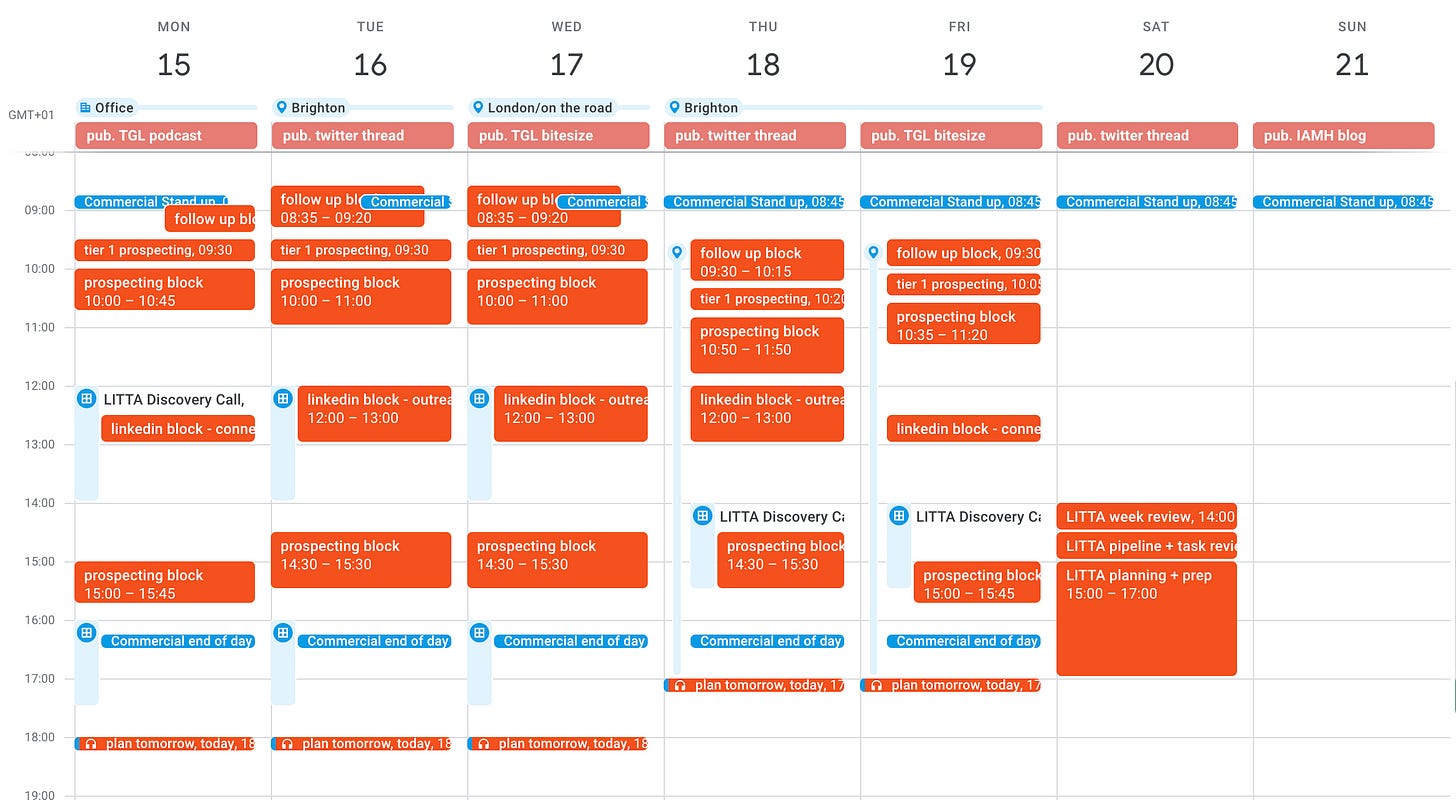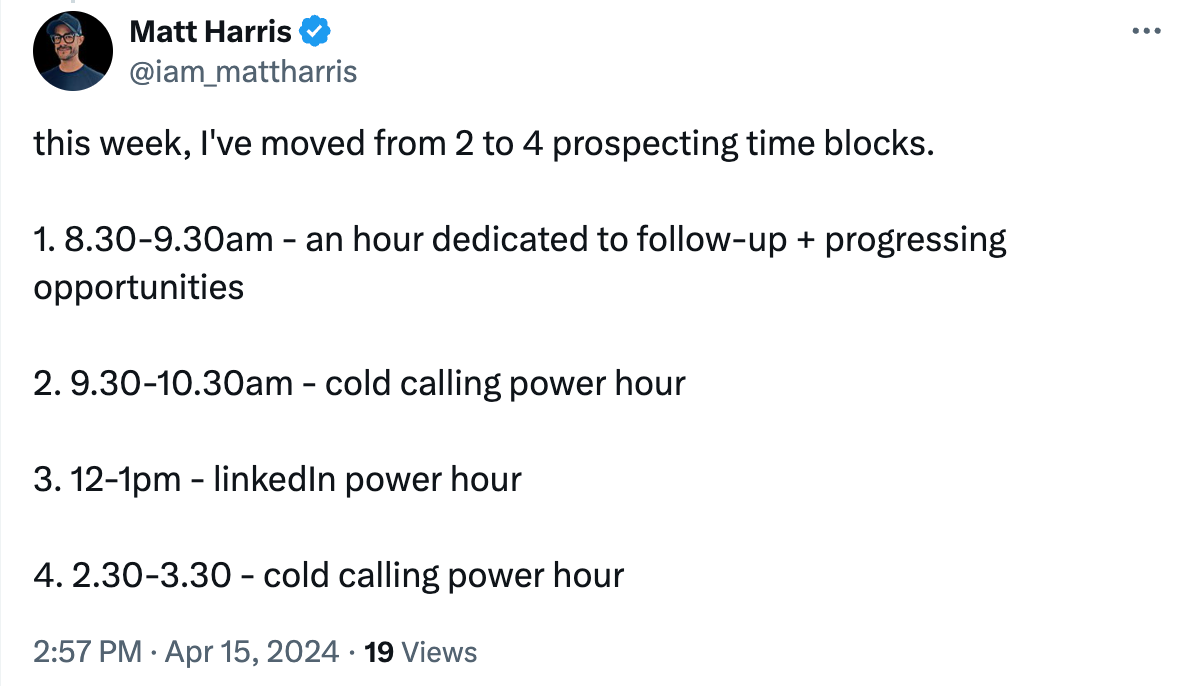Time management.
The key to increasing your productivity.
There are countless books, YouTube videos and Twitter threads on the subject.
I won’t bore you with the latest hack or some complex new system for managing time. There are plenty of experts for that.
This post sets out five rules, practices, habits—whatever you want to call them—that have helped me manage my time effectively over the last three years.
I wish I’d started using them sooner, but it’s better late than never (there’s irony somewhere in there).
In today’s email:
Organise tomorrow, today
Prioritise tasks
Block time & schedule the week
Golden Hours & Platinum Hours
Review & Adjust
THE BIG IDEA
1. Organise tomorrow, today
A couple of years ago, this Productivity Game video changed how I approach my day.
The key takeaway is this: to improve time management and increase productivity, you need to plan for tomorrow, today.
Now, I spend 15 minutes at the end of every day organising tomorrow.
This one action isn’t limited to sales activity; it applies to everything.
At one stage, I got so granular with my planning that I chose the podcast episode for my morning run the night before.
Absolute game changer.
2. Prioritise Tasks
I had different priorities when I started The Growth Lab than those at LITTA.
I focused on marketing, product/service, and sales with The Growth Lab. It was a new business.
My sole responsibility at LITTA is sales, so I dedicate the majority of my time to new business development.
That means I focus on high-priority activities. For five hours a day, I cold call, send emails and engage on LinkedIn.
If you’re doing little prospecting, two two-hour time blocks per week will change the game for you.
For significant account acquisition, prospecting needs to take up a third of your time (or more).
3. Block time & schedule the week
Since joining the LITTA team, I’ve created a weekly schedule for my sales activities.
I dedicate specific time blocks for particular types of sales and prospecting activities:
follow up calls & emails
cold calls
LinkedIn outreach
Time blocking and planning my week has made me more effective.
I say no to calls or meetings during my blocked time and prioritise my most important tasks.
4. Golden Hours & Platinum Hours
I took this approach from Fanatical Prospecting.
The Golden Hours are a handful of hours we have each day for selling. They’re the best time of the day to reach our ideal clients.
Different industries have different Golden Hours.
I’m selling to construction, FM and property management.
Their most responsive times appear to be between 8am and 3pm, so I’ve staggered my prospecting throughout the day.
During the Golden Hours, time is money.
Outside of the Golden Hours, I attack the important non-sales activities.
Early mornings and late afternoons/evenings are the Platinum Hours.
That’s when I attack important, non-sales activities like:
building prospecting lists
research
writing content
CRM management
admin
The Platinum Hours set up and support my activities during The Golden Hours.
They allow me to focus on the highest-impact activities: cold calls, follow-up calls, emails, and LinkedIn prospecting.
5. Review and adjust
I’m constantly reviewing my schedule and how I manage my time.
Here’s a good example - in January, this was my prospecting schedule:
After a few weeks, I realised I wasted a lot of time between calls. Let’s face it: if you hate cold calling, you will procrastinate.
So, in April, I switched it up:
Focusing on cold calls for a 60-minute block has increased my output. I’m not procrastinating between calls.
Regularly reviewing how I manage my time allows me to improve and adjust.
In doing so, I’m continuously improving to drive better sales results.
Thanks for reading!
Matt @ The Growth Lab
Forwarded this email?
Subscribe here:
Thanks for subscribing to The Growth Lab.







